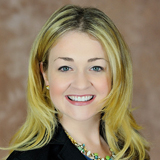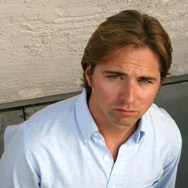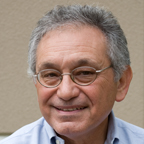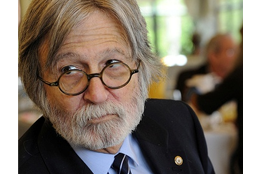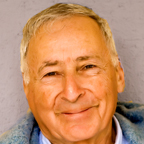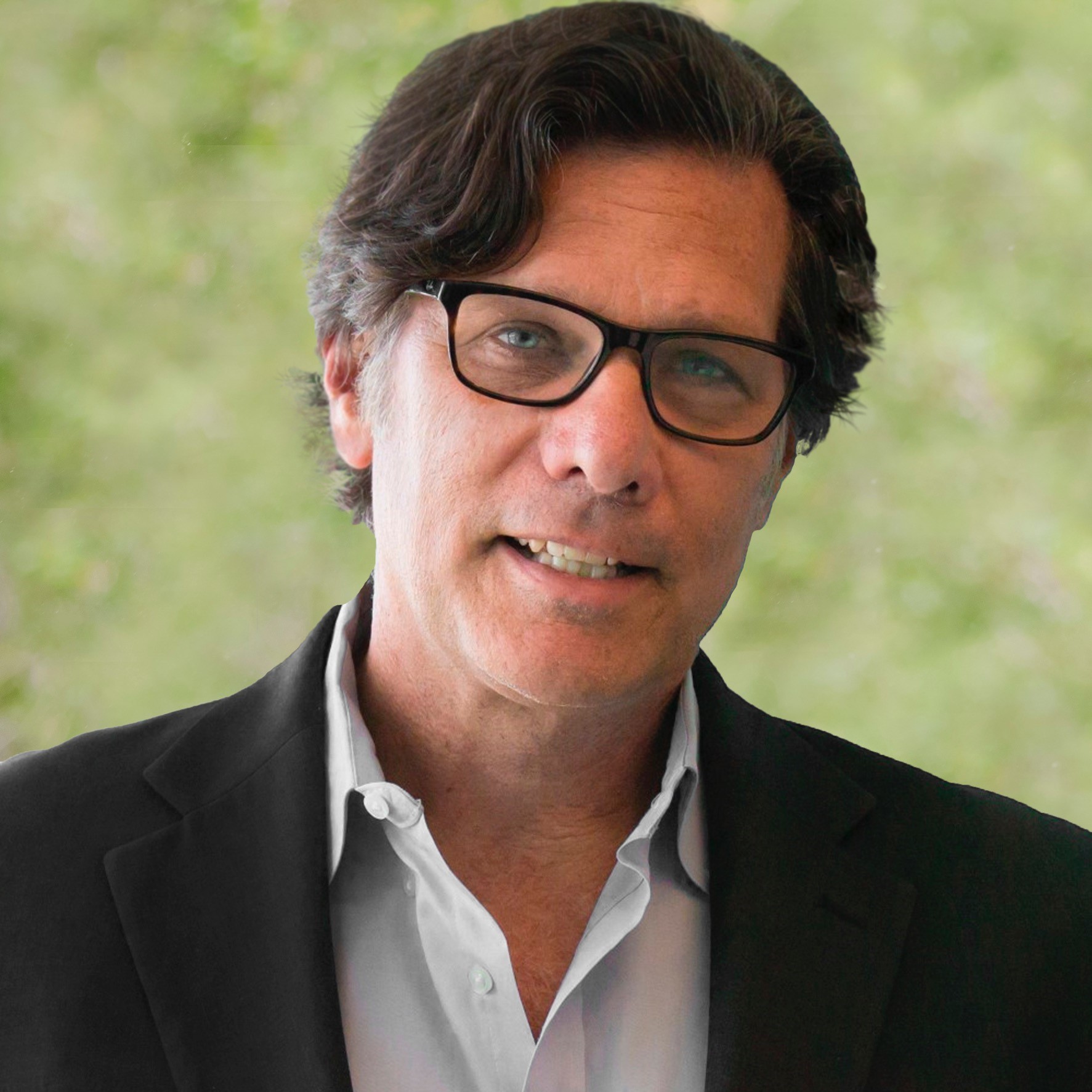
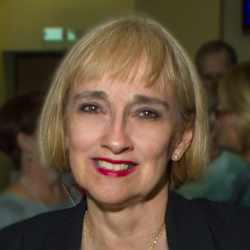
By Sandi Page, Member, Osher LLI at FAU Jupiter Marketing Committee member
Robert P. Watson, Ph.D., is Professor of American Studies at Lynn University, Senior Fellow at the Florida Joint Center for Citizenship and the political analyst for WPTV 5 (NBC). He has published 41 books and hundreds of scholarly articles, book chapters and essays on topics in American politics and history, been interviewed by hundreds of media outlets across the U.S. and internationally and has served on the boards of numerous scholarly journals, academic associations and presidential foundations. Professor Watson has won numerous awards, including the Distinguished Professor of the Year awards at both FAU and Lynn (three times) and the Faculty Service awards at both FAU (twice) and Lynn. His recent book, “America’s First Crisis: The War of 1812,” received a 2015 “IPPY” Award for book of the year in U.S. history and his book, “The Nazi Titanic,” was featured at a dozen book festivals. His book, “The Ghost Ship of Brooklyn,” has just been released and has received advance critical praise.
Dr. Watson, we are delighted that you are back at Osher Lifelong Learning Institute at FAU, Jupiter for the fall 2017 semester to give two highly anticipated lectures: “Hamilton: Man, Myth, Musical” on October 19, 2017 and “The Ghost Ship of Brooklyn,” with a book signing immediately after the lecture, on November 13, 2017.
Our last in-depth interview with you appeared on our May 6, 2016 blog post (The Professor’s Corner: Dr. Robert P. Watson), right before you left Osher LLI Jupiter, after years of teaching here, to pursue other projects. So many of us have felt like political orphans with your absence in a year that has been fraught with political mayhem. We’ll be discussing that a bit later in this interview, but, for now, let’s turn to your accomplishments this past year. First of all, the hardcover version of your book The Nazi Titanic: The Incredible Untold Story of a Doomed Ship in World War II came out at the end of April 2016 to excellent reviews. (Congratulations, also, on the paperback version which has just been released). You embarked on a promotional tour and book signings last year for this book, a rare luxury for you, as your many professional obligations had prevented your doing any extensive touring for your other books. How did you enjoy the experience?
It has always been both an honor and delight to lecture at Osher LLI, and I think I have said as much just about every time I step on the stage at the Jupiter campus! I have so many friends in the audience and I enjoy speaking to such enthusiastic, inquisitive, and sharp folks. So, it was a difficult decision to step away from Osher LLI after so many years. I did so largely for two reasons, one of which was to devote more time to family matters—I never like to miss my kids’ musical performances or sporting events. The other was that I enjoy visiting historic sites, museums, and universities as a “visiting scholar” and wanted to try to be a part of some book and literary festivals. I needed to carve out the time for these passions and goals. Happily, both recent books have been a part of several festivals and I had a number of visiting scholar invites… and was able to accept most of them. It is hard to pick a favorite, but I particularly enjoyed being at the new Museum of the American Revolution in Philadelphia to discuss The Ghost Ship and at Hebrew Union to talk about The Nazi Titanic.
When I lived in Paris, I regularly bought bilingual professional books, necessary study tools for me to support the many and varied projects of my French clients. At a book festival, I purchased one such book from a French business author, well known for his bilingual French/English works. He kindly dedicated it for me. Here is his exact quote: “To Sandi, Enjoy my book! It is English as it should be spoke.” My jaw dropped and my heart sank as I realized I had just bought a book which could now reasonably be expected to contain many other such errors. I looked up and saw the twinkle in his eye and we both burst out laughing. He told me that several people had asked for their money back after reading that same dedication because they hadn’t realized that he was the ultimate jokester!
What is the most outrageous dedication you have ever written (or wished you could have written) during one of your book signings?
Well, the two new books are in foreign language editions, so when folks send them to me for a signature, I try to write a blurb in the language in question. I am not multi-lingual (only a basic understanding of Spanish and French), so I am sure I inadvertently ended up signing “May you Mama dog-face to the banana patch” by mistake! However, I do admit to a few naughty dedications. For instance, I signed a handful of copies of my book Affairs of State (which is about the history of mistresses and misbehavior in the White House) as follows: “I hope you enjoy the sex as much as the presidents did…”
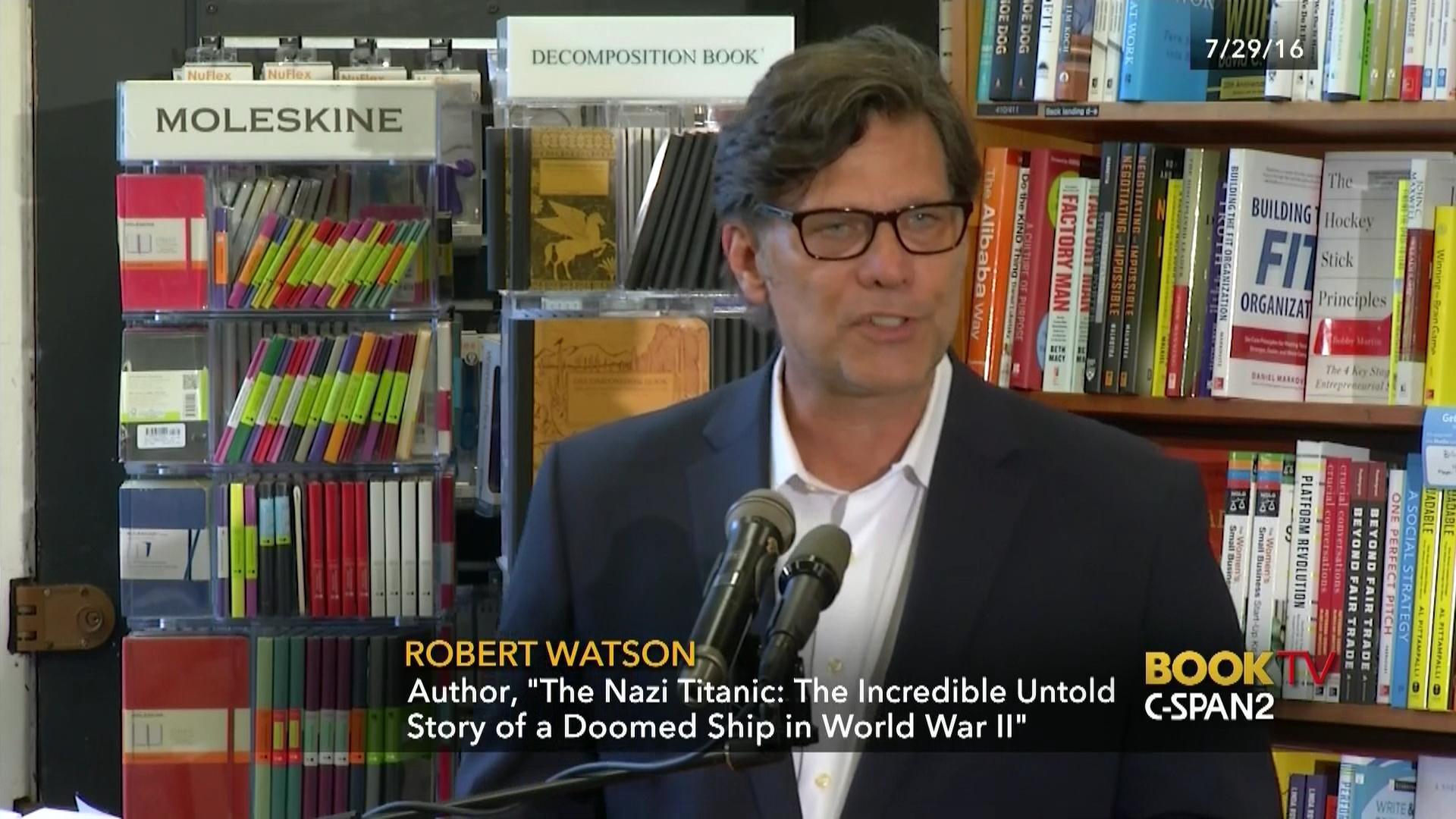 Your latest book, The Ghost Ship of Brooklyn: An Untold Story of the American Revolution, which you will be talking about in your November 13 lecture, was released on August 15, 2017. It has received many glorious reviews, including those by two Pulitzer Prize winning authors, The New York Times, and even Senator John McCain (R-AZ), a former Navy pilot and Vietnam POW, who wrote, “The Ghost Ship of Brooklyn brings to life the hell on water that thousands of prisoners were forced to endure during the American Revolutionary War. Through these untold stories, Robert Watson recounts the horrors inflicted aboard the HMS Jersey, remembers the courageous spirit of its captives, and ensures the memory of these American Patriots will never be forgotten.”
Your latest book, The Ghost Ship of Brooklyn: An Untold Story of the American Revolution, which you will be talking about in your November 13 lecture, was released on August 15, 2017. It has received many glorious reviews, including those by two Pulitzer Prize winning authors, The New York Times, and even Senator John McCain (R-AZ), a former Navy pilot and Vietnam POW, who wrote, “The Ghost Ship of Brooklyn brings to life the hell on water that thousands of prisoners were forced to endure during the American Revolutionary War. Through these untold stories, Robert Watson recounts the horrors inflicted aboard the HMS Jersey, remembers the courageous spirit of its captives, and ensures the memory of these American Patriots will never be forgotten.”
What was the catalyst for your writing this book? Does discovering such horrors and writing about them haunt your dreams at night? Will you be embarking on another promotional tour for The Ghost Ship of Brooklyn this fall?
As was the case for The Nazi Titanic, it was a difficult book to research and write. What motivated me throughout the process was the notion of “lest we forget…” Twice as many Americans died on this one wretched prison ship than died in combat during the entirety of the Revolutionary War, making the struggle aboard this ghostly ship by far the bloodiest of the Revolution. Yet, the story has been lost to history. Forgotten. Any school child can tell you all about Paul Revere’s midnight ride or the Boston Tea Party, but we have forgotten the sacrifices of so many prisoners of war. This is, tragically, also the case for so many other wars.
Yes, I have a busy fall and winter. I will be speaking about the book at a number of historic and Revolutionary War sites. I think there are a few discoveries in the book that will help to change the way we think about the Revolutionary War. This is something I have discussed with some prominent historians and look forward to more of those conversations at these venues. One of my talks will be at the Brooklyn Historical Society, where a handful of artifacts from the “ghost ship” are kept! Part of the historical process involves a healthy debate among historians, researchers, and the museums that “present” history to the public. I love this facet of my job and can’t wait to hit the road!
Also, happily, The Ghost Ship has been accepted at a few literary festivals. I am particularly excited about being a part of the Miami Book Fair (it is my “hometown” festival) and the Brattleboro Literary Festival, as that part of Vermont is lovely, especially in the fall.
You recently had the honor of being asked to be the 2017 Commencement Speaker at Lynn University where you are a Professor of American Studies. Lynn’s President Kevin M. Ross said, “Dr. Watson has made a significant impact on our students, through his teaching, scholarship and community outreach. A prolific author and gifted storyteller, he was a natural choice for our 2017 commencement speaker.” Dr. Ross praised you even more highly when he introduced you at the commencement ceremony but then, unexpectedly, he threw you a curveball by way of a hilarious challenge seconds before you were to start speaking. What was that challenge and what was your reaction?
It was, of course, a great honor to give the commencement address. It is also quite a responsibility and I didn’t want to give the “usual” address filled with empty clichés. I wanted to offer the graduates words of advice that they actually could use and would remember. I tried to do that through what is still the best pedagogical tool – storytelling; and I boiled their lessons down to one bit of advice.
We are fortunate at Lynn to have as our president not only someone who is very innovative and entrepreneurial but also who has, as I discovered, a great sense of humor. Yes, President Ross threw me a major curveball. The comedian Will Ferrell gave the commencement at USC and it was hilarious. If you have not seen it, do so… Among other things, he sang “I will always love you” in falsetto. Our students were still talking about it the day of our commencement, so the president introduced me as the speaker and then challenged me – on the spot — to sing, or better yet, rap my speech. He wanted people to be talking about our commencement rather than USC’s. Now, I have never been accused of being shy… but, for the first time in my life, my heart skipped a beat and my mouth went dry. I will talk about anything with anyone, but I didn’t want to rap in front of an auditorium full of graduates and their proud parents! But how do you back out of an invite like that? So, I rapped the opening of the musical Hamilton. I am pretty sure it will be the first (and last) time a professor rapped a commencement address!
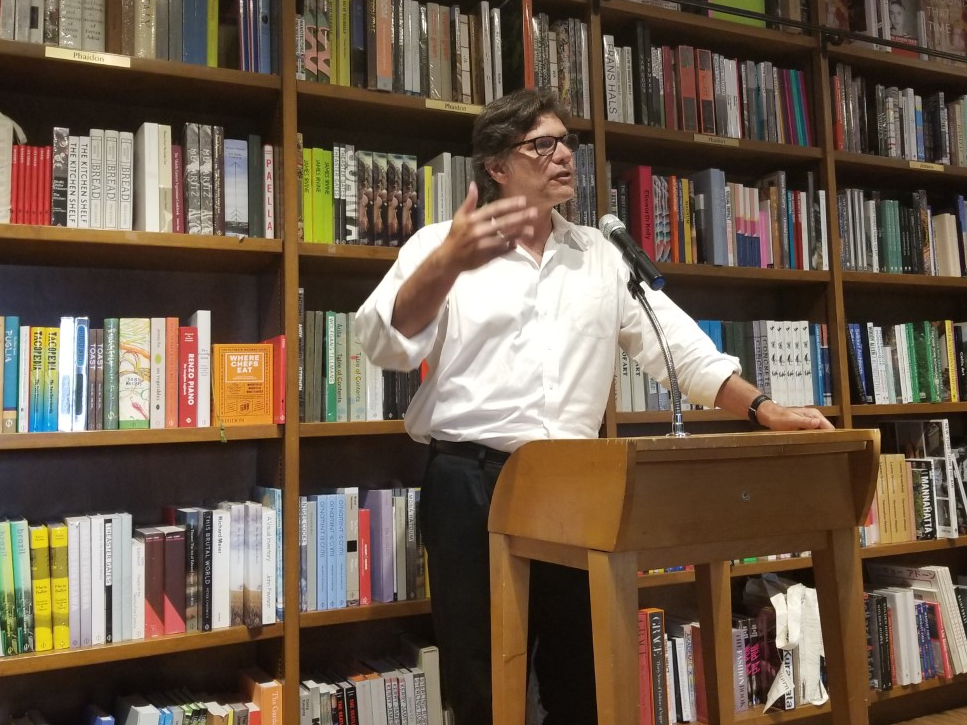 What was the most important piece of advice that you gave the graduating class during your speech?
What was the most important piece of advice that you gave the graduating class during your speech?
Well, you’ll have to watch the speech on YouTube to find out the details (the consolation is that it will likely come in handy if you are having trouble sleeping!)… I emphasized the need for civility. It is the one thing that can help us solve any problem facing us today. We need to respect others and carry ourselves with dignity and humility.
You also addressed what you called the “Three C’s of the Constitution.” I found it fascinating.
Could you share with our readers what you mean by that?
Yes, when the Framers set about trying to forge a new type of government, they knew it would be very difficult. There were egos and passions involved, and they wanted to frame a system that checked power. The answer to both questions of how to get along and how to form our government was… the three C’s, which are cooperation, compromise, and consensus. These constitute the conceptual framework of our system of government, yet all three principles and guidelines are being ignored today. In fact, many of our leaders boast that they will “never compromise.” They shun cooperation in favor of bullying and see consensus as a sign of weakness. They couldn’t be more wrong!
As I said at the beginning of this interview, you, and your lectures, have been sorely missed this past year at Osher LLI. We needed to hear your take on the crazy roller coaster ride that the U.S. has been on since the tumultuous 2016 presidential campaign, the debates unlike any that have come before, and the surprising, no matter how one voted, results of the November 8th election. We are dealing with a coarsening of political discourse and revelations each day that would sound preposterous had they been written about in any political or spy novel. Bigotry, racial divides and xenophobia have once more reared their ugly heads. In the midst of all this, you have launched “Project Civitas.” Could you tell us about that?
Civitas is the Latin term for civility and citizenship. I have been shocked and deeply disturbed by what has been happening in politics… but also on television, in the entertainment industry, in business, in sports, and so on. There is a coarsening, as you correctly note, in society. Is it now alright to make fun of the disabled, scapegoat immigrants, blame the victim and excuse the perpetrator…? Absolutely not! I created Project Civitas to promote the values of civility and citizenship on campus. I believe it is one of the most important lessons we can pass on to our students — we expose our new students and our student government to these values through workshops, host speakers to reinforce the importance of dialogue and respect, and even asked our students to take a civility pledge. Anything goes and all opinions are welcome, as long as they are civil. While violence and bullying are on the rise across the country and at college campuses, our campus is a “hate-free” zone… and the students are taking ownership of that!
What do you feel are the biggest challenges that we in America are now facing? Is there an answer to facing these challenges or are we in uncharted territory? Are you optimistic or pessimistic?
Well, I always point out that we survived Millard B. Fillmore and the Civil War, so we’re pretty darn resilient. That said, the sheer scope of the problems today are disconcerting and, when one considers that everything is shouted to the world through social media, the situation is unique. The two biggest concerns I have are the incivility and lack of critical thinking in society. Fear has replaced fact and paranoia has replaced civility. Millions of Americans do not believe in evolution, climate change, or vaccinating their children. We have a president who declares the real news to be fake and the fake news to be real. It is Orwellian. People are as susceptible to bold-faced lies and propaganda as we always have been, and we don’t ever seem to learn the lessons of history!
We are all looking forward to your upcoming lecture on “Hamilton: Man, Myth, Musical.” I hope we will be as lucky as your Lynn University students and that you will be rapping part of your speech!
Speaking of Founding Fathers, I have one last question for you. Do you think Hamilton, Washington, and the others are spinning clockwise or counterclockwise in their graves?
Well, politically speaking, Washington, Adams, and Hamilton would go to their left, while Jefferson and Madison would go to their right. Ben Franklin would figure out a way to spin both ways! One thing is sure – their leadership and wisdom are needed.
Robert P. Watson, Ph.D., fall 2017 lectures at Osher LLI at FAU, Jupiter:
Hamilton: Man, Myth, Musical
Thursday, October 19, 2017, 7:00-8:30 p.m.
The Ghost Ship of Brooklyn
Monday, November 13, 2017, 3:00-4:30 p.m.; Book-signing: 4:30-5:30 p.m.
To register for Hamilton, click here.
To register for The Ghost Ship of Brooklyn, click here.



